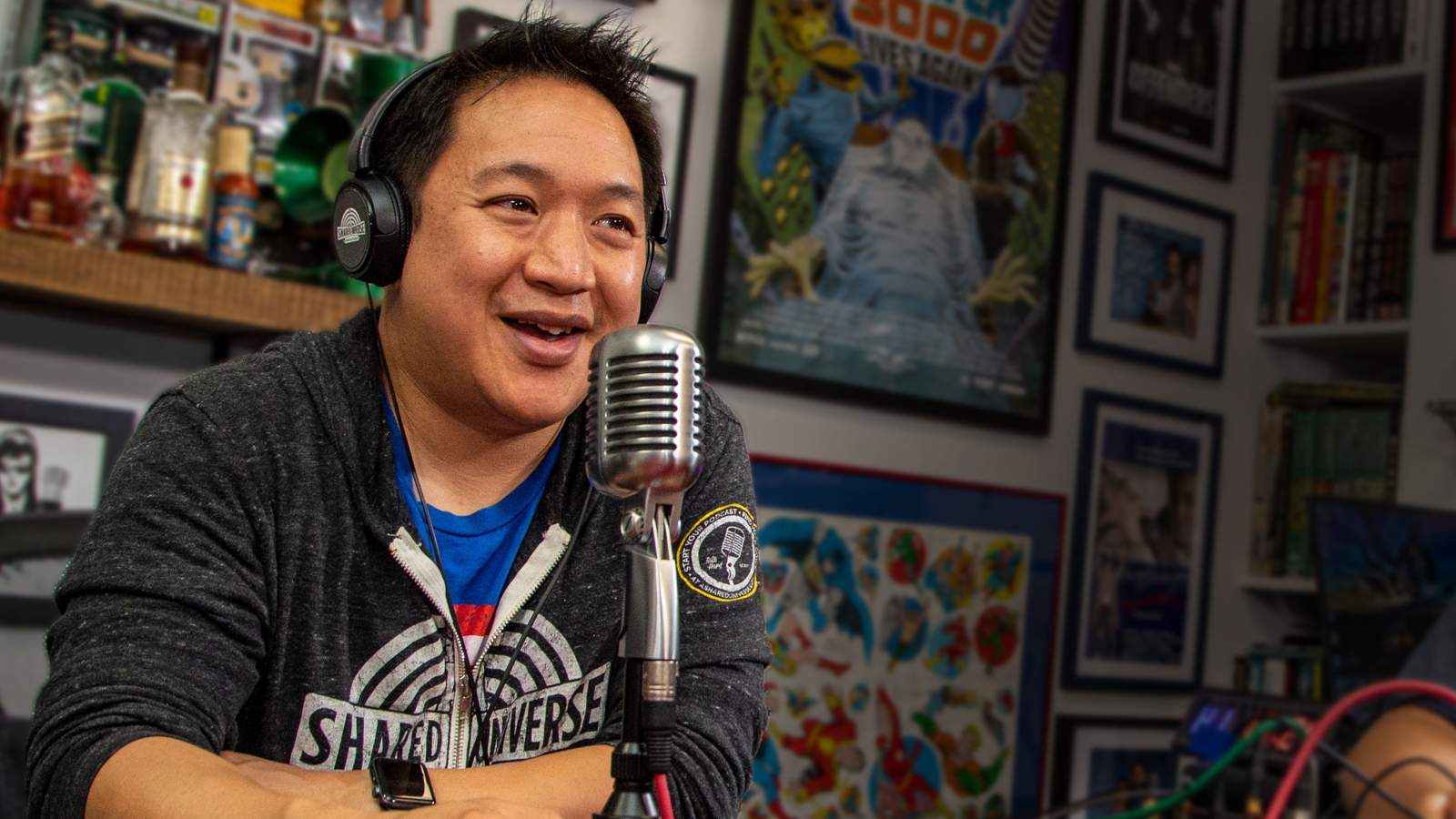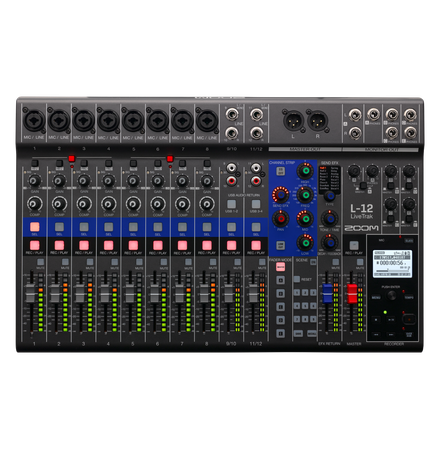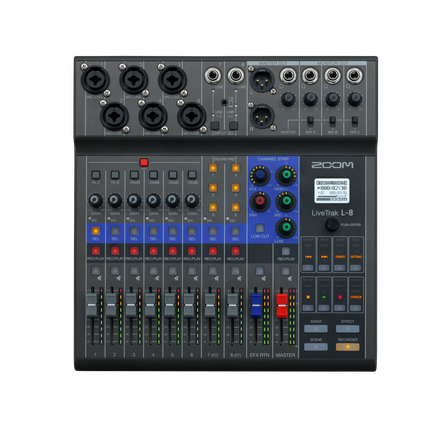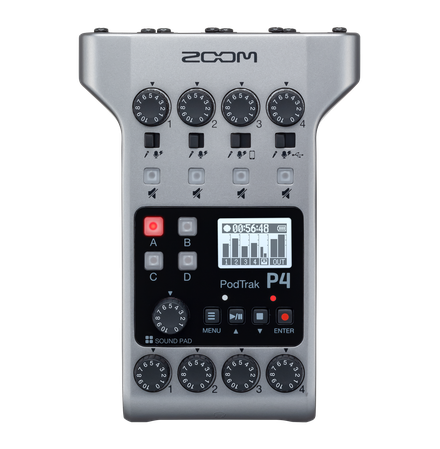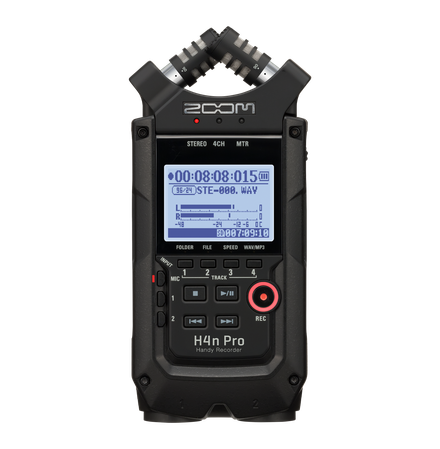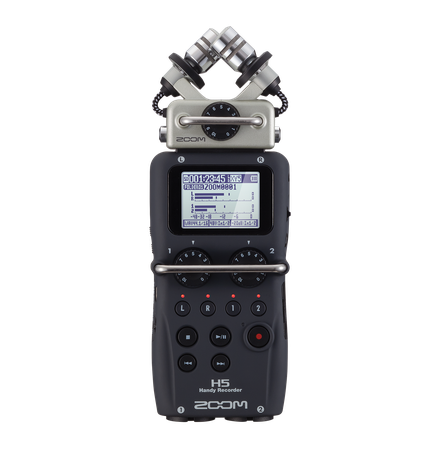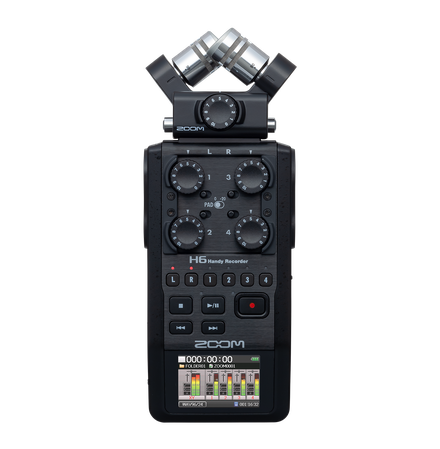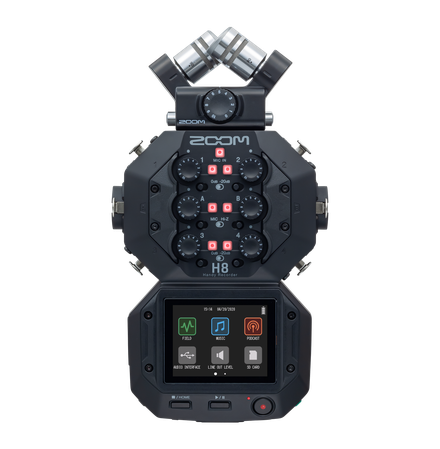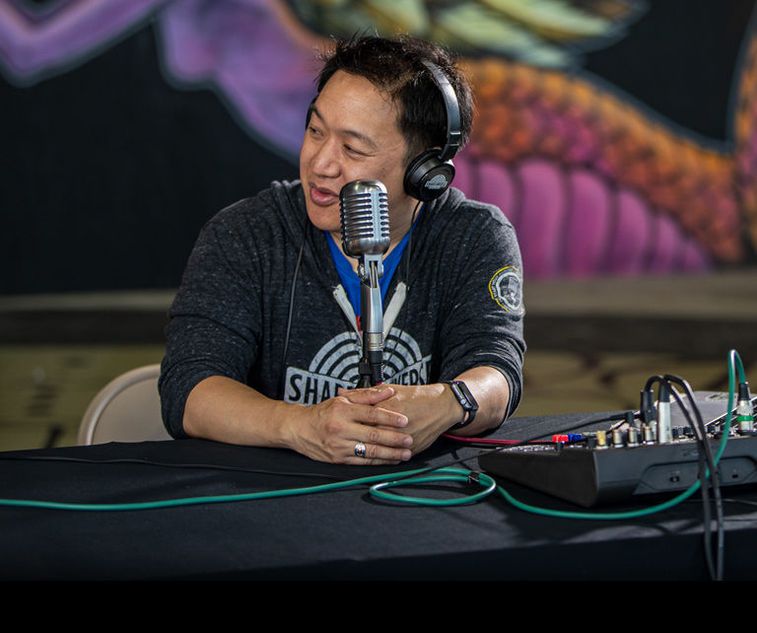
In 1995, Ming Chen made a fan website for the movie Clerks that caught the attention of Kevin Smith and lead to them working together, which eventually to Ming launching his own podcast on Smith’s SModcast network. Since then, Ming has starred in a hit reality television show on AMC, become a celebrity in the world of comic books and pop culture, and created a studio dedicated to helping other podcasters create and grow their content. Ming recently sat down to discuss what inspires him creatively and how he’s looking forward to a future populated by media created by anyone who wishes to do so.
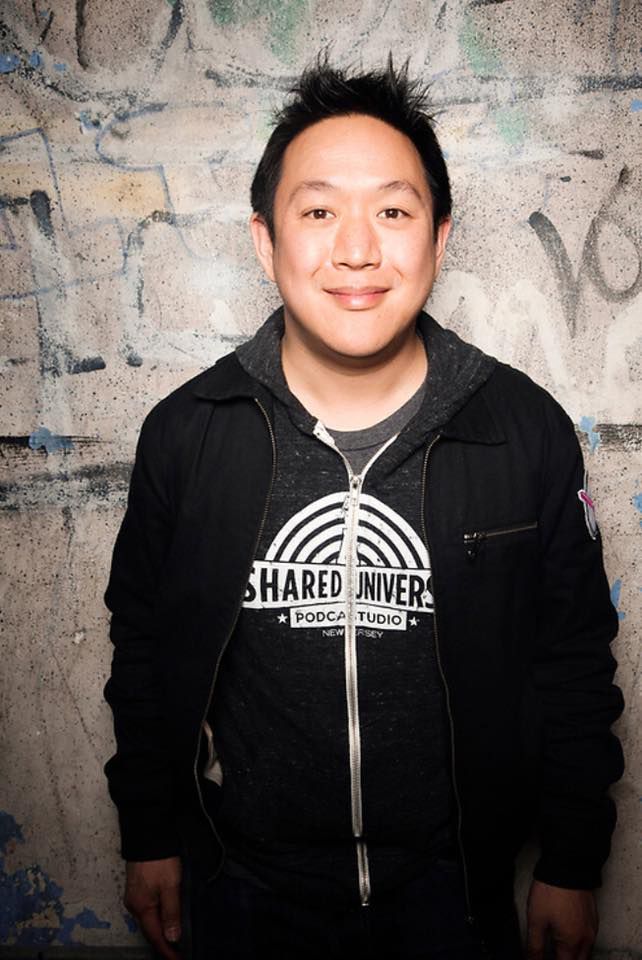
How did you first get involved with podcasting?
I got involved with podcasting because of Kevin Smith. He started podcasting years before anyone else did. He’s always been one step ahead of everyone else. Kevin was always searching for a platform where he could be himself and tell stories in the way only he can, without anyone else telling him what he could and couldn’t say.
He did give radio a shot for one night in Los Angeles. I don’t think it really worked out because he had to break for commercials, he couldn’t swear, he couldn’t tell stories the New Jersey way. He wanted to find a platform where there were no rules. So he started the SModcast podcast in 2007.
Back then, I was the guy who took the finished audio file and uploaded to the internet and made sure it was listed on distribution platforms. I had no interest in creating my own podcast. I was fine being the technical guy.
A couple of years later, Kevin said, “I’m starting a network and I need other shows that aren’t just mine. I need other voices. I want you to start a podcast.”
I said, “Wait, I’m the guy who uploads your podcast, why would I start one?"
Kevin responded, "You’re famous already; you’re a great storyteller and have stories to tell. People love you. I’m none of these things. Why would I start a podcast?” He said, “You don’t get it! Everyone should be doing this. You’re going to get addicted, this is so much fun.”
My initial thoughts were, “I’m not good behind a microphone. I don’t have any training. I didn’t go to broadcast school.” Nothing within me said I would be good at this. I just gave it a try for Kevin.
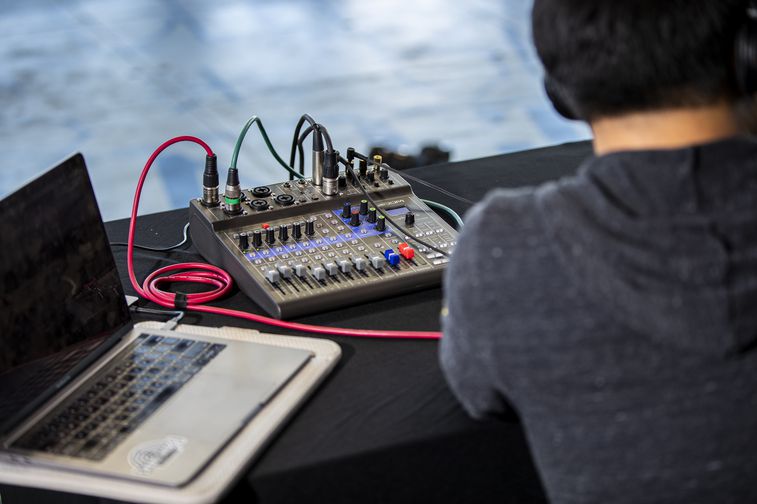
He told me to just talk about what I like. I like Star Wars, comic books and food. So that’s what he told me to podcast about. He said if I could talk about those three things for an hour without doing any research, then it’d be a great podcast. All you have to do is talk about stuff you love. I was like, “Who’s going to listen to that?” and he said, “Other people that like Star Wars, comic books and food!”
One day in 2010, me and my co-host Mike Zapcic from Comic Book Men (and the manager of Jay and Silent Bob’s Secret Stash, a comic book store in Red Bank, New Jersey) hooked up some microphones and we recorded our first episode. It was amazing. We had so much fun. We talked about science fiction and pop culture for a solid two hours. It flew by. After that, we were hooked. That show is called “I Sell Comics” and we’re on episode 309 now!
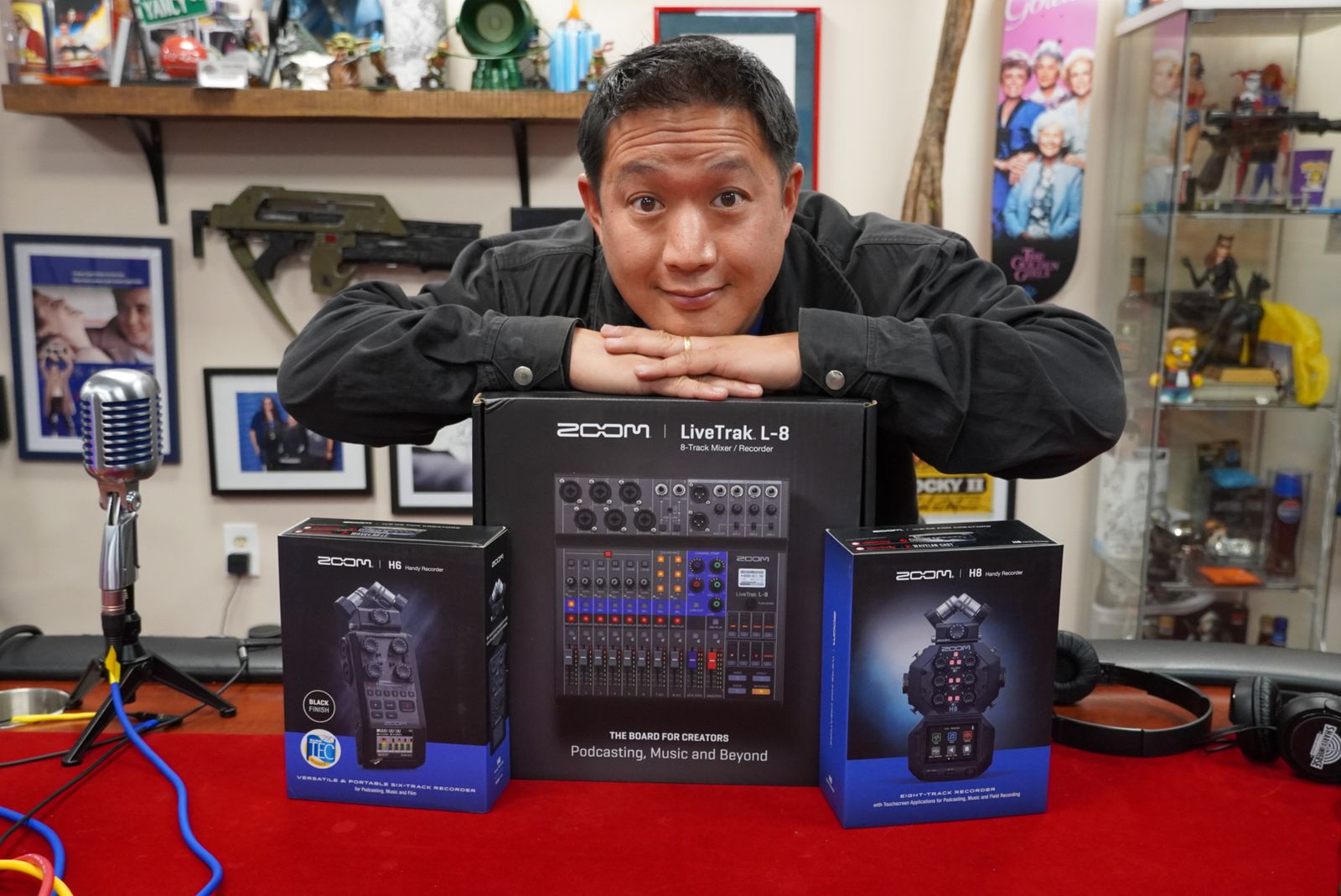
How did you initially link up with film director Kevin Smith and become part of his SModcast network?
Kevin made a movie called Clerks in 1994, which he shot in New Jersey, in black-and-white on grainy 16mm film. The entire movie cost less than $30,000 to make. I saw this movie when it was released and I fell in love with it. I’d never seen a movie with dialogue like this. I’d never seen a movie where people talked like my friends and I do about pop culture and about life. Kevin nailed it with Clerks and I became obsessed with the movie.
I decided to create a fan website for it. I created the website back in 1995. Two months after I put that website up, Kevin saw it and I guess he liked it. He called me and said, “Hey man, I love what you did. This looks pretty cool. Can you do more? I’m starting a production company and I’m going to make more movies. I think we can use this website thing to communicate with fans.”
I just said, “Yes, yes and yes, a million times yes.” That’s how we started working together in 1996. That led to a fulltime job with him and eventually podcasting on the SModcast network and a TV show, Comic Book Men. It’s been a very weird path and it all started because I was a fan.
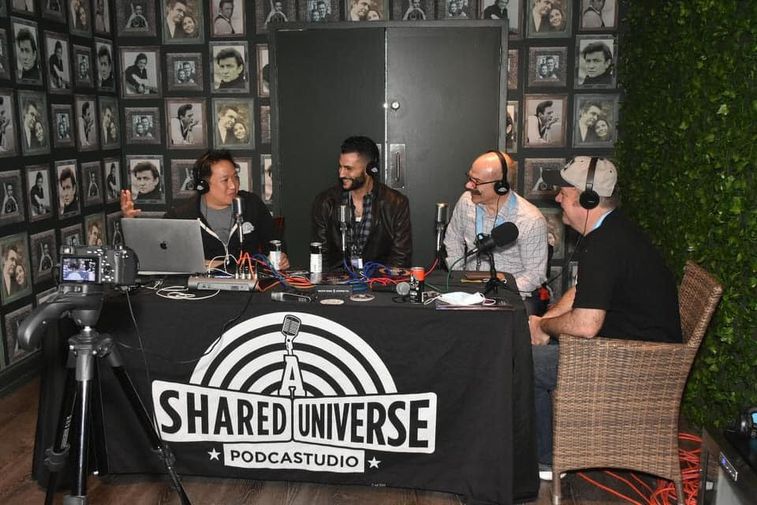
What excites you most as a content creator?
What I love is the freedom. There’s no station manager. There’s no boss. There’s nobody telling you what you can or can’t talk about or create or record. You choose. It’s all up to you. You can talk about whatever you love, no matter how broad or niche the topic is. I love that.
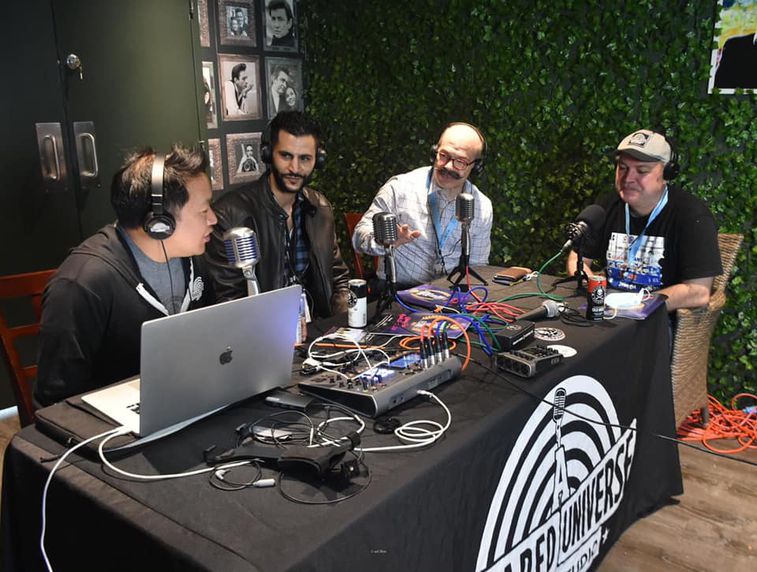
There are truly no boundaries in this world. Before podcasting, there were these walls that limited the amount of people who could produce content. If you wanted to get into broadcast audio ten to fifteen years ago, you’d have to go to a school, audition for a radio station and get hired. Then they’d put you under a 3AM slot, and you couldn’t talk about what you wanted. You’d have to stick to their format.
Now that wall has been obliterated. With modern technology, you can hit record and literally create your own show and have it up all the distribution platforms in ten minutes. It’s really amazing. Now you can just take out your phone, shoot it, edit it and put it on the internet. You have the potential to find an even greater audience on YouTube than you would have if some network deemed you worthy enough to be on their channel—and you have complete control.
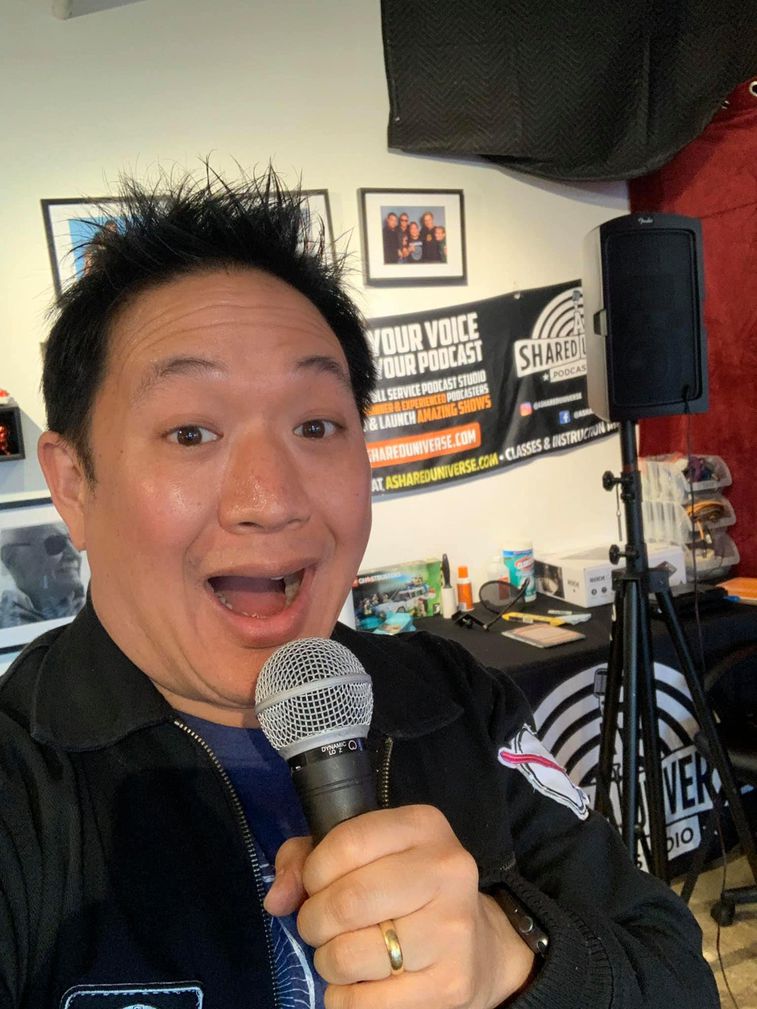
What are some challenges you’ve faced and overcome in your career?
A lot of it came from self-doubt, feeling like, “I can’t do that, nobody will listen to this.” It was a lot of stuff that came from myself. A lot of roadblocks I put up myself. Luckily I had a guy like Kevin Smith on my side and other creators that said, “Don’t listen to that, you’re creating this for yourself. Put it out there and you will find an audience. You will find the people you’re speaking to, they will come out and make themselves known. There’s nothing that should be holding you back—doubt, fear, anxiety, etc.
Aside from that, people have been very receptive to what I’ve done throughout my podcasting career. I think the technology is easy to use, that has not presented any major challenges. I tell people, “You will find your way, keep going, keep recording, keep promoting, just keep at it.” You never know, one day you’ll be on vacation or out somewhere and somebody might spot you and say, “Hey, I love your podcast. I know we’ve never met but I feel like I know you because I listen to your podcast all the time.”
Sometimes we have people on the podcast that are nervous and say, “I’ve never done this before” and I always tell them, “If you’ve ever had a conversation, then you can do this.” It’s just about removing that self-doubt.
Who and what are your biggest influences on the way you approach podcasting?
Definitely Kevin Smith, if you listen to any of his speeches or anything that he’s done, he always encourages people. Like, “If I could do it, you can do it.” But he also outlines how—taking away personal roadblocks and not listening to people who might try to stop you. No matter how big or small, you can do it. So get out there and do it. Great results will happen, especially if you love it. It’s going to work out. Life is short, go out and do the things that you want to do. Everything else will fall into place.
He’s been right about that so far. He’s been one of the biggest influences. Also, the amount of content that he produces is very inspiring. I think he’s got five weekly podcasts and almost as many live streams. He’s taken his podcast on the road to do live shows. He’s encouraged other people to create content. He’s one of those guys that’s made movies and been in the Hollywood system. He has access to money and big crews, but I think he’d rather do everything himself. He’s that guy that’s like, “Yeah I can do this myself, and I can help other people do it too.”
I also love Gary Vee; he’s very encouraging and speaks very frankly and straightforward. He always shares the mistakes he’s made—which aren’t many—so other people can learn from him. Those two are the biggest influences on what I do.
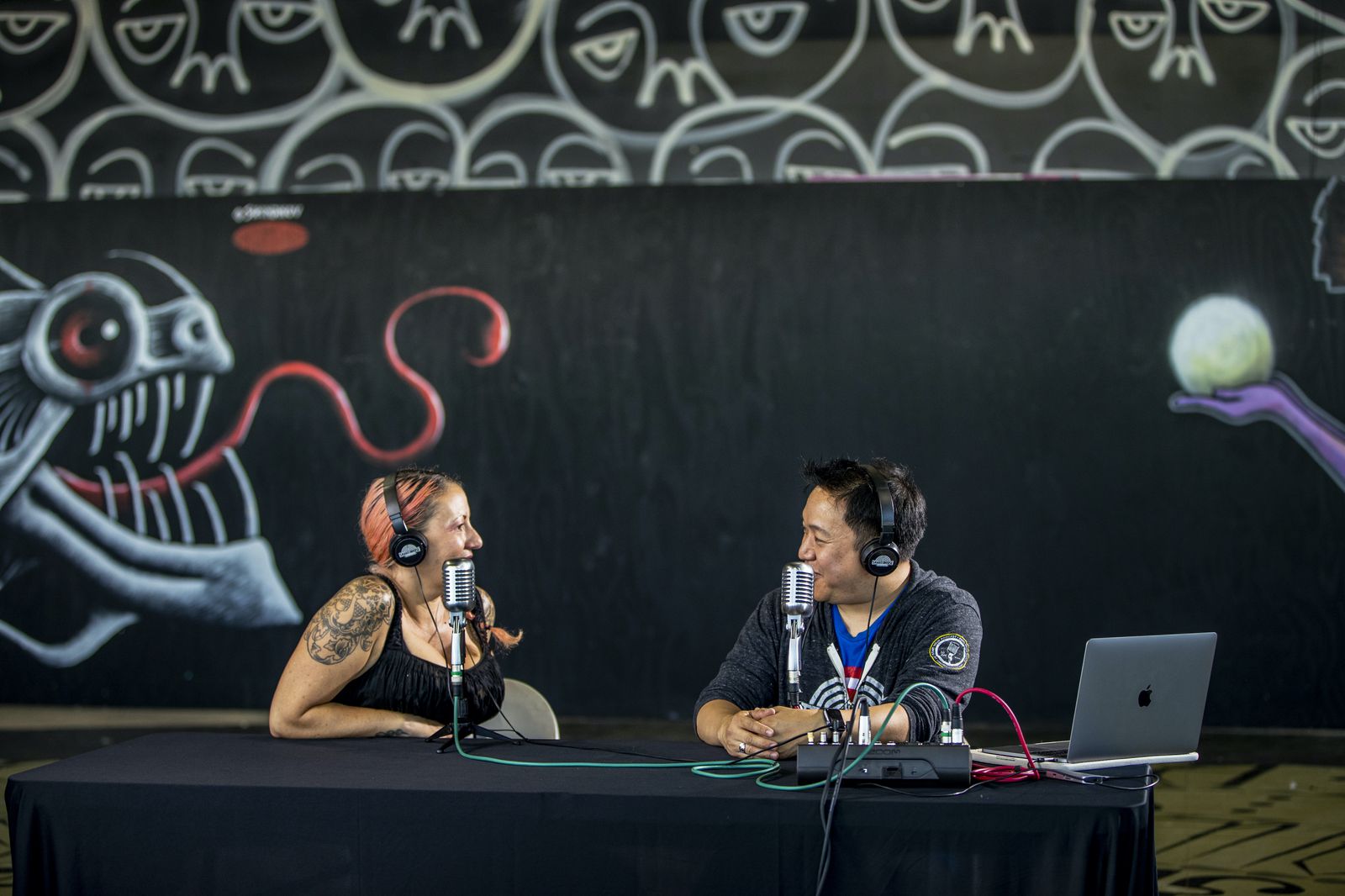
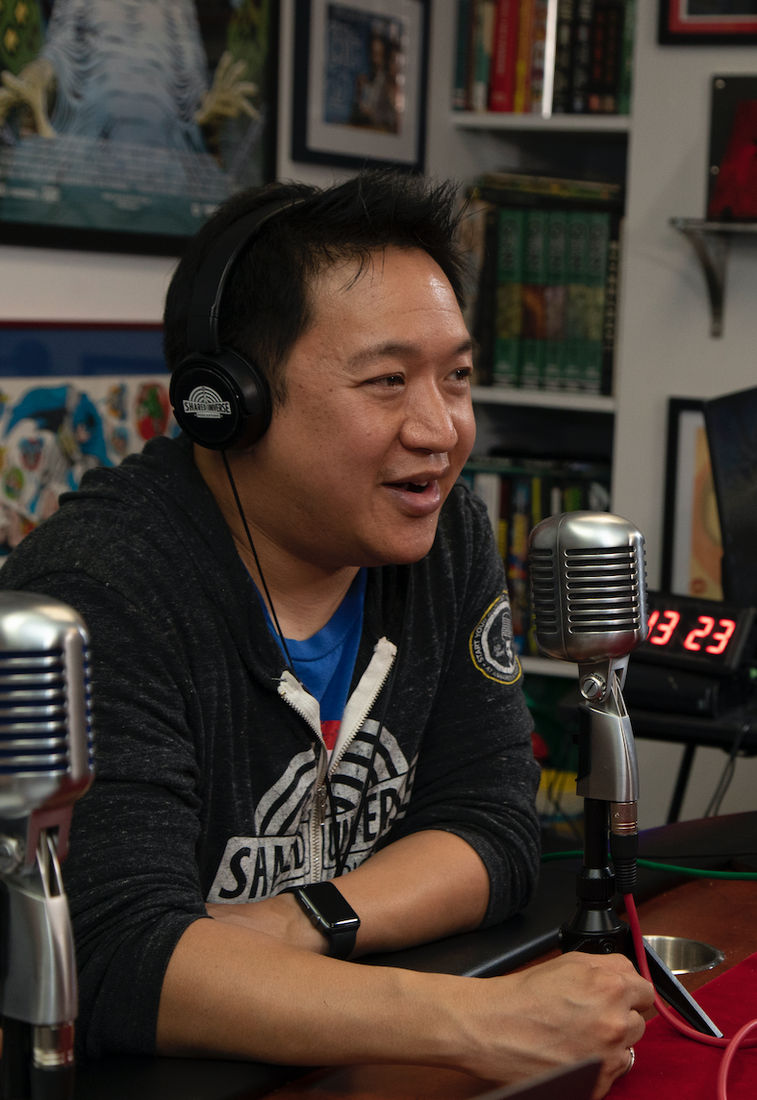
In addition to co-hosting two podcasts, you also starred on the AMC show Comic Book Men and you’ve appeared as a guest on many other podcasts. How do you adjust your creative approach when working on different types of projects?
For me, podcasting is me and a friend or a guest, and we’re by ourselves in the studio. We’re just talking to each other. It’s basically just a conversation. It does go out to the world, but there’s no audience here. There’s no one else watching. It’s a very intimate, personal conversation when you do it that way. It’s kind of insulated.
That’s different than say going on another podcast where I don’t have to do much preparation, I’m just answering other people’s questions. For me, appearing on other shows is more relaxed because I don’t have to prepare a day or two in advance, I don’t have to write down questions and research. The questions are about me, and hopefully I’m an expert on the subject.
Podcasting was almost training camp for the big leagues of the TV show, because we already learned how to keep the conversation flowing, and to be funny every so often. That worked out didn’t it? That was pretty cool. During the filming, we kind of knew what was going to happen each day, but the dialogue was all ours. So all those creative processes, although they’re separate, they’re all intertwined.
Modern technology has enabled podcasters to work remotely together. How do you approach this kind of collaboration? How does it differ from recording in the studio together?
Before the pandemic, we did not do a lot of remote podcasting. It existed, but the people in our studio were hesitant to use it because of the technology barrier. Like, “Does my laptop even have a microphone or a camera? I don’t want to jump on a Zoom or a Skype. That sounds too daunting.”
Here in the studio, our original business model was that this is a time and place where you can get together face-to-face and actually talk to each other. We wanted to increase that interaction. Before the pandemic, 99% of our podcasters would come to the studio and talk to each other in person. That’s how I prefer it. I think the true interaction happens when you’re face-to-face in the same room.
Post-pandemic, that number has obviously shifted. People got used to being on Zoom and learning how to set up their camera and microphone. We don’t really have to worry about that anymore because people are already on video-conferencing platforms, so their technology is already set.
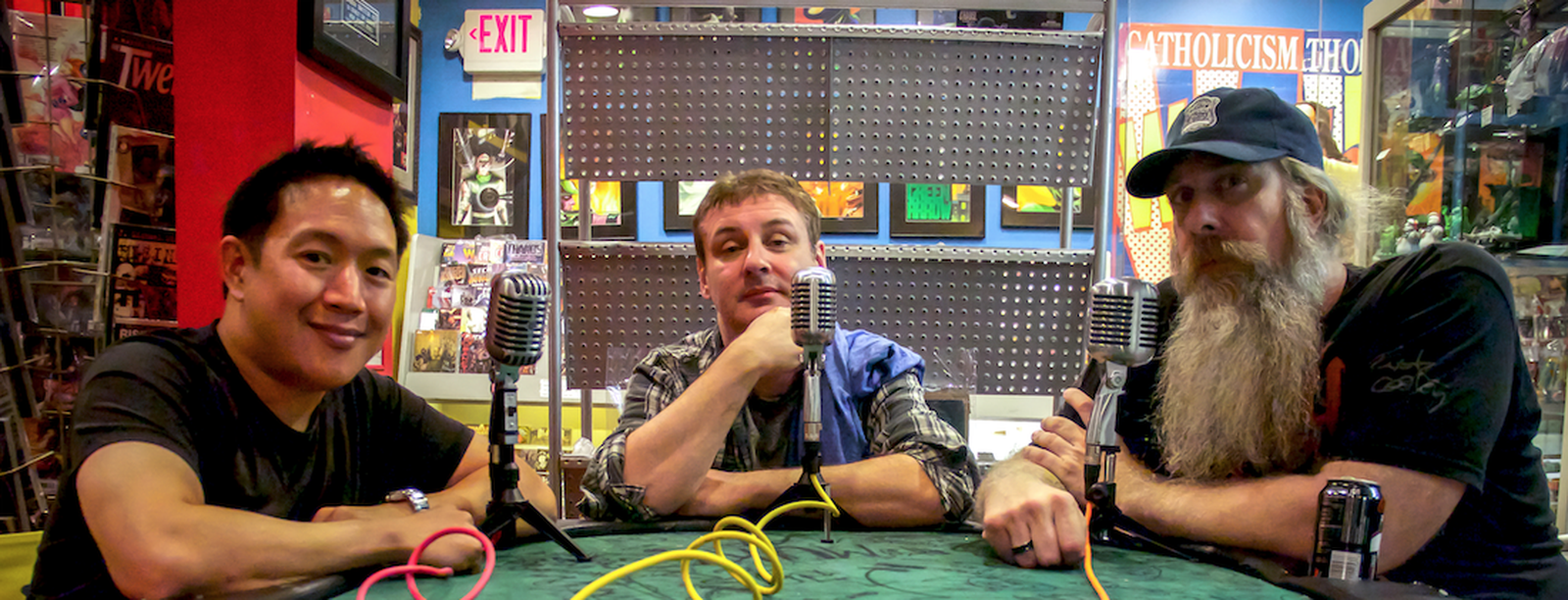
During the pandemic, our face-to-face business model was gone. People were not allowed in the studio for several months. We moved everybody online. My worry was whether we would lose the human interactions by talking to squares on a computer screen. It was a big fear. Once we got it going, we did some test runs, and within a minute, it became clear that this could work.
The technology has improved so much that the video isn’t choppy and the audio sounds great. You’re looking at each other in the eye for the most part. You don’t lose that much by being remote. In a world where we could only be remote, I think everyone got used to it. Now, we have the option in the studio to either have everyone can attend remotely, or maybe just one person is in the studio here and someone else remote. Or everyone can be together in person. Business wise, it’s made things better.
Now, our partners can say, “Hey my guest can’t be here, what do I do?” and we just get them in remotely, no big deal. We do it all the time now. They can be in the Himalayas or the UK and we can just patch them in and create content. I’m glad this technology existed when it did. It saved my sanity in a world where we couldn’t go out and talk to each other in person. It worked out really well. I think it’s also increased the amount of podcasts that get created worldwide. I do prefer being face-to-face, but if you can’t do that, the next best thing just got a lot better.
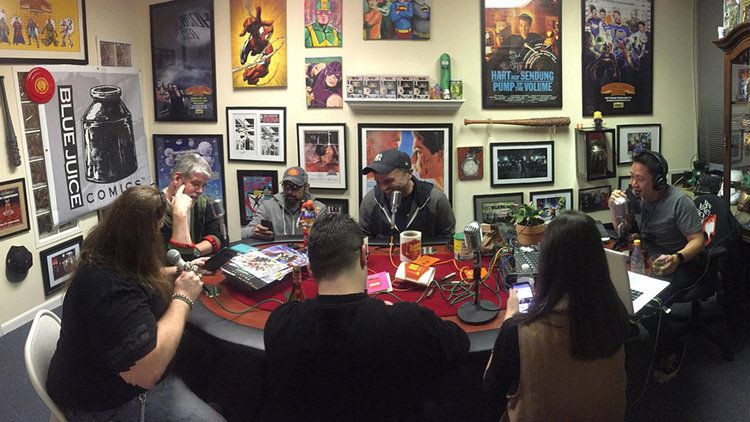
Do you have your own studio? What’s your setup? How has it evolved over your career?
Mike and I run a podcast studio together in Eatontown, it’s called A Shared Universe PodcaStudio. It’s a studio geared for and towards podcasters and livestreamers. We have two studios that anyone can rent to create their podcast and livestream from. I truly think everyone should be doing this. Many people don’t have a quiet place to create and make podcasts. We’re here for you. We rent the space by the hour. We just want people to have fun and record a show that can go out to the world.
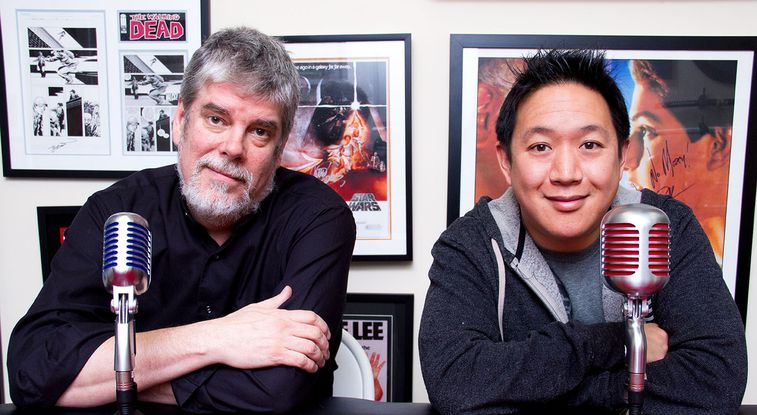
The podcast studio started because I had all of this pop culture stuff that I would collect at comic conventions. Eventually, my wife said, “Can you get this stuff out of here? This is cluttering the house, I’m tripping over Captain America’s shield!” I found an office space to rent as a podcast studio and moved all my stuff there! We put all the pop culture stuff on the wall. We have an environment in the studio that looks like a comic book just blew up. To me, environment is very important. It puts people at ease when they come in here. It’s my home away from home.
I love Zoom products because, one, they work. All of my friends who have used them on my recommendation come back and say, ‘Oh man, I wish I had this years ago."
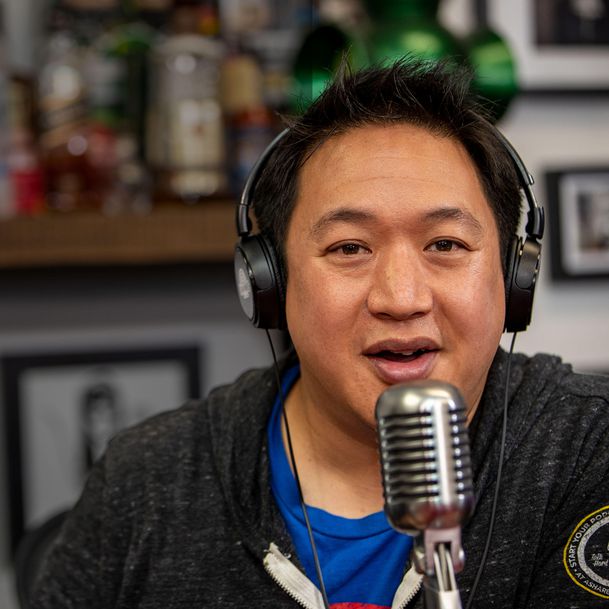
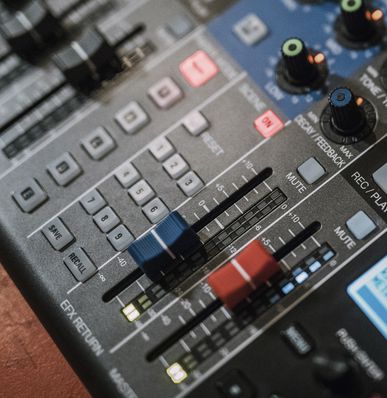
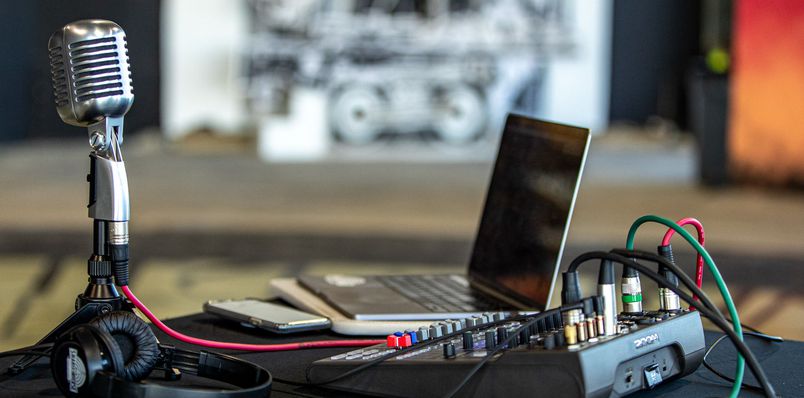
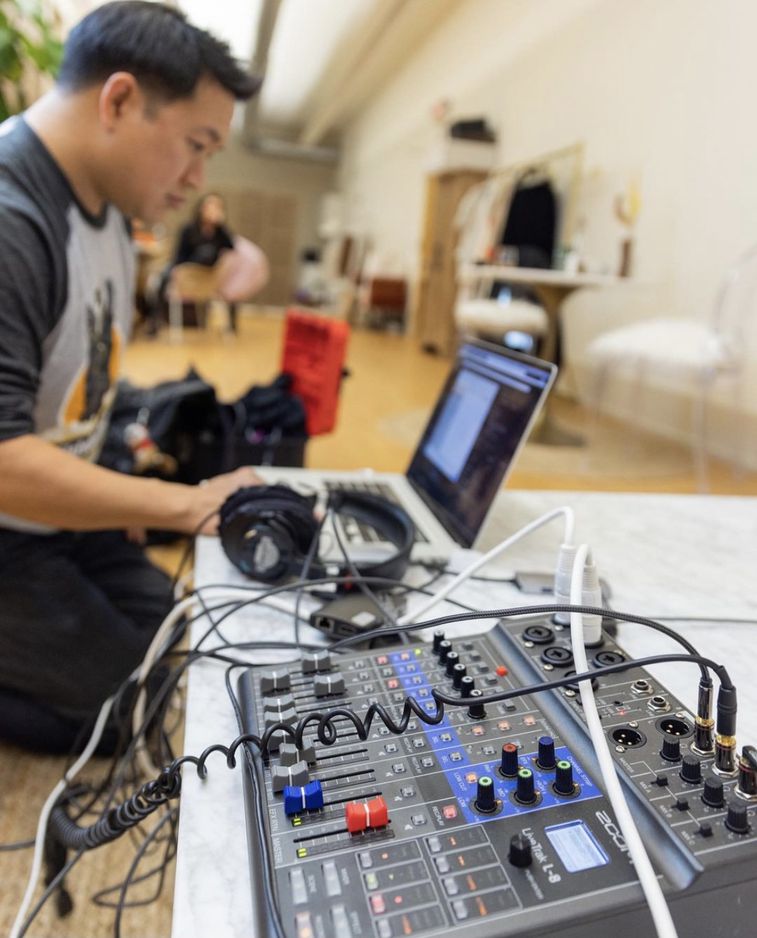
How do you find the next project/collaboration? Do you let the work come to you, or do you actively seek out projects you’re interested in working on?
A little of both—a lot of collaborations come just because I meet people and make friends, I find out what they love, they find out what I love, and we decide we should do something together. Like, “You shoot great videos. We do podcasts and remote events. Let’s do a festival.” Or, “Hey you have a film festival, we love talking to filmmakers. Can we set up a podcast studio at the film festival and talk to all the filmmakers coming in and out?”
It sounds like a crazy idea but it works. I don’t actively seek it out, it just organically happens. You meet cool people doing cool stuff and you want to work together. The sparks start flying, so you start doing stuff together. One of the main reasons we started the podcast studio was to meet other podcasters. Nothing pleases me more than when we meet someone who invites us to be on their show next week, or wants to be on our show. I love that it’s collaborative, that you can just hang out and be on other people’s shows and then return the favor and they can be on your show. That spirit is one of the reasons we started this studio. That’s why we named it A Shared Universe.
What kind of advice would you give to someone who wants to pursue a career in podcasting?
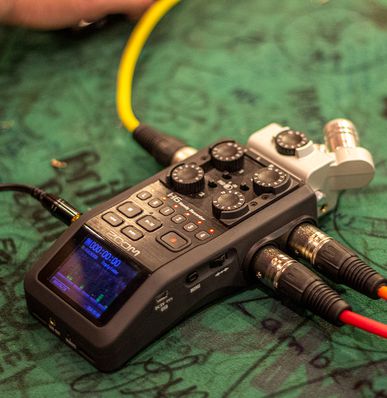

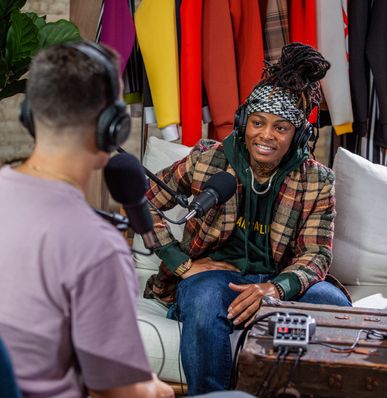
Start. The technology exists and it’s really easy to use. Zoom has products that make podcasting pretty easy. Anyone can do it, whether you’re four years old or four hundred years old. Grab a Zoom recorder or board and just start podcasting.
Keep going and be consistent. The most successful podcasts come out every week. They do not take breaks. They are 100% committed. They record content on a consistent basis. That’s the only way you’re going to be successful is if you keep to a schedule and put out content at least once a week.
Have fun! You’re going to get addicted. It’s one of the most fun things I’ve done in my entire life. I’ve been doing it for more than ten years, and I love it more now than I did when I started. Whatever you’re podcasting about, I assume it’s something you love and know something about.
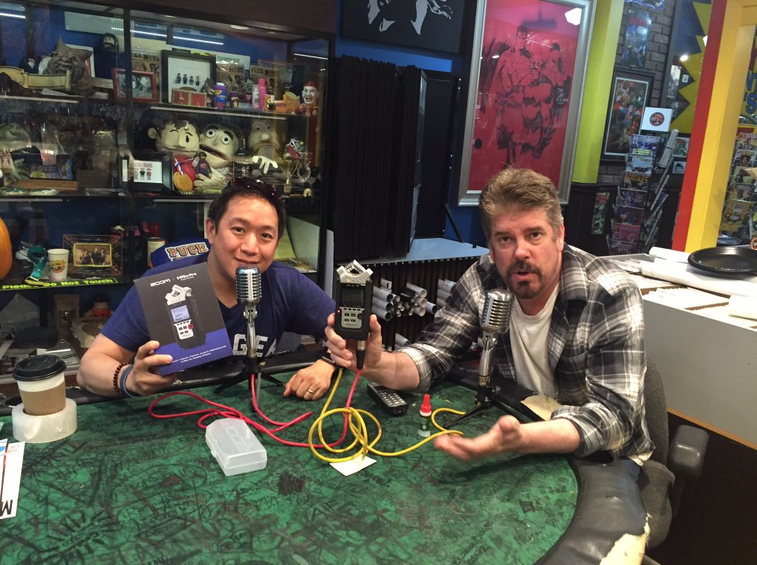
Lastly, how does Zoom help you achieve your goals?
Zoom has helped us immeasurably in the last couple of years, because their products are easy to use and portable. You can throw their stuff into a backpack and record anywhere. They’re foolproof, they’re reliable and they’re durable. I hate saying it, but I may have thrown around some of my Zoom gear before, and it lived up to the task. If I have to interview someone and they can’t be here, I know I can pack a piece of Zoom gear, meet them anywhere and get the job done.
